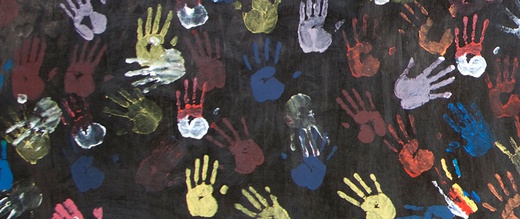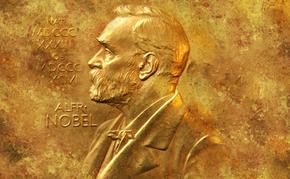The views expressed in our content reflect individual perspectives and do not represent the official views of the Baha'i Faith.
Recently my wife and I watched the latest Michael Moore film: Where to Invade Next.
In the film, Moore visits France, Germany, Slovenia, England, Italy, Norway, Finland, Iceland and Tunisia where he interviews families, teachers, politicians, prisoners, and students, amongst others. What he shows audiences is a high degree of social cohesion in Europe. He found employees working shorter hours, and enjoying extended holidays and vacations; women receiving five months of paid maternity leave after birthing a child; university students including visiting Americans receiving free and superior education; bankers being sent off to prison for financial mishandling; labor participating actively with management in company decision-making; criminals being rehabilitated in minimum-security prisons; women emerging into leadership positions in the upper echelons of business; and Europeans accessing affordable health care.
Such conditions can only have their origins in a widespread societal support for basic human rights.

A shot from Michael Moore’s new movie ’Where to Invade Next’
As Moore is an American who has in earlier documentaries decried economic shortcomings in his home country, he raises the question in this latest film: “Why can’t America embrace European ideals, some of which originated here?” Americans, he points out, work longer hours with fewer holidays. Mothers who birth a child may receive unpaid leave. Education costs have escalated with student loan debt exceeding $1 trillion. In America, no bankers were incarcerated in the aftermath of the 2008 financial collapse. Cooperation between labor and management is uncertain. Two-thirds of incarcerated Americans are re-arrested within 3 years of being released from prison. Women may be emerging into leadership positions, but their incomes are less than their male counterparts. Health care costs are, well, extortionate.
Yes, Moore admits, taxation is higher in Europe than in America. But he makes the point that Americans pay more for their lack of a cohesive social system than Europeans pay in taxes for their system. Viewing Europeans in consequence as more socially cohesive, he asked interviewees what they thought about the American system. One replied: “We believe that our system is all about us. In America you believe it is all about ‘me.’” A woman CEO replied that she would never live in America: “You treat your people so badly there,” she said.
Whether we can accept the European system as an elixir to healing perceived economic ills in America or elsewhere depends on how we view the human condition. In the aftermath of the Paris and Brussels terrorist attacks, we may be compelled to ask if the perceived well-being of a part of the human race can be preserved as long as another part is unwell?
Addressing the peoples of the world more than a century ago, Baha’u’llah focused attention on this unhealthy condition:
Regard the world as the human body which, though at its creation whole and perfect, hath been afflicted, through various causes, with grave disorders and maladies. Not for one day did it gain ease, nay, its sickness waxed more severe, as it fell under the treatment of ignorant physicians, who… have erred grievously. And if at one time, through the care of an able physician, a member of that body was healed, the rest remained afflicted as before. – Gleanings from the Writings of Baha’u’llah, p. 255.
As seen in the Michael Moore film, a social system, to be socially cohesive, must respect human rights. In 1948, in the aftermath of the horrors of World War II, the United Nations defined these rights when it issued the Universal Declaration of Human Rights (UDHR). This solemn political agreement was signed in Paris by 48 participating countries, including the United States and ten European countries. Since then, the overwhelming majority of the world’s countries have signed on.
Article 25 in the Declaration states the following:
Everyone has the right to a standard of living adequate for the health and well-being of himself and his family, including food, clothing, housing and medical care and necessary social services, and the right to security in the event of unemployment, sickness, disability, widowhood, old age or other lack of livelihood in circumstances beyond his control. Motherhood and childhood are entitled to special care and assistance. All Children, whether born in or out of wedlock shall enjoy the same social protection.
Some European countries appear to have created their systems modeled on this particular Article in the UDHR. The intention of the UDHR in general and in this Article in particular was social cohesion—which many countries have sacrificed in favor of more mercantile pursuits.
In today’s world, many political systems are less likely to respect human rights. As a consequence, they are more likely to enforce forms of social control so as to maintain order within their realms. But as terrorism becomes increasingly menacing to the body of mankind, nations must come to support political agreements they sign. For instance, if human rights were to be universally bestowed on all peoples, would the terrorists stand a chance? It is understandable, then, why Baha’u’llah revealed to humanity the true elixir for healing the ills of the human body when he wrote:
O rulers of the earth! Be reconciled among yourselves… Beware lest ye disregard the counsel of the All-Knowing, the Faithful.
Be united, O kings of the earth, for thereby will the tempest of discord be stilled amongst you, and your peoples find rest, if ye be of them that comprehend. – Ibid., p. 254.

















Comments
Sign in or create an account
Continue with Facebookor